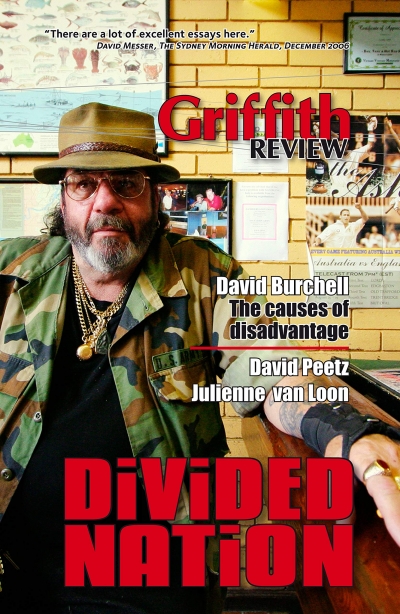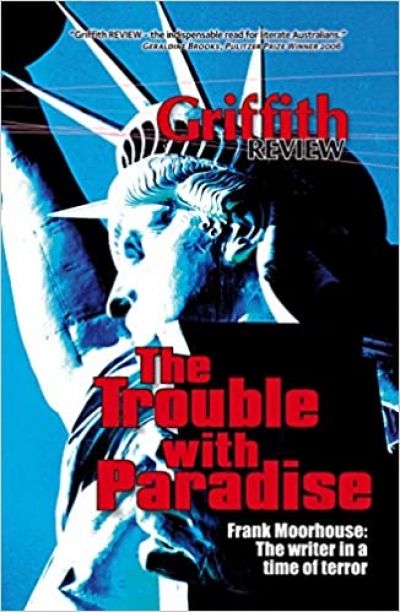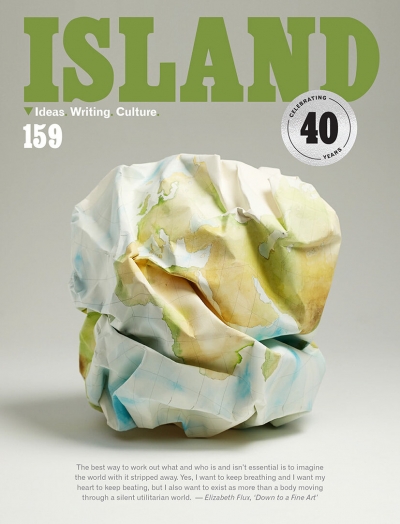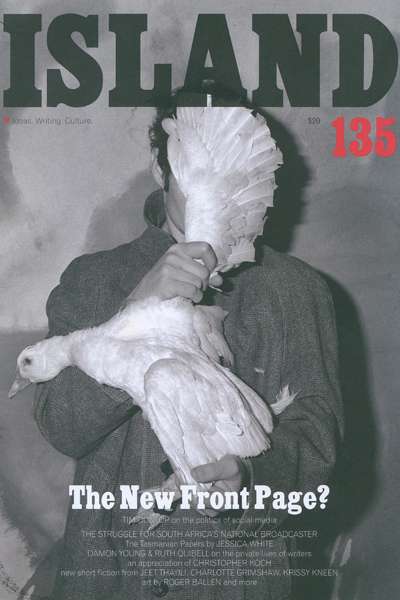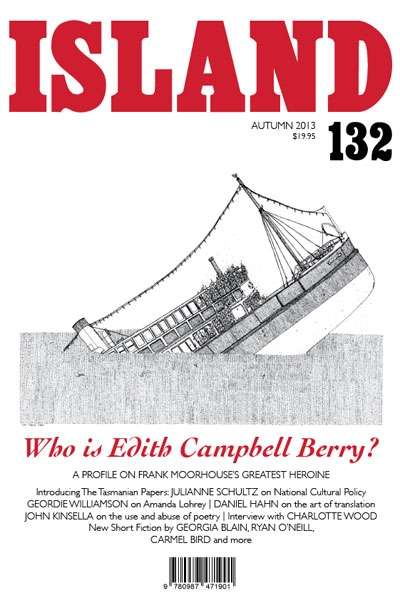Island Magazine
Hecate vol. 30, no. 2 edited by Carole Ferrier & Island 99 edited by David Owen
Walt Whitman’s famous line ‘I sing the body electric’ could well serve as the epilogue to Etchings 2, whose dynamic offerings are gathered under the theme of connectivity and the generation of energy. indeed, being ‘wired’ has become a predominant feature of modern existence. This is obviously true of our relationship to the internet and of our addiction to instantaneous transactions and connections. Yet we are wired in other ways as well. To be wired is also to be anxious and edgy; it implies a disconnection, a nervous distance. The pieces showcased in Etchings 2 examine the multifariousness of this experience.
... (read more)Griffith Review 15: Divided Nation edited by Julianne Schultz
Griffith Review 14: The trouble with paradise edited by Julianne Schultz
Island 132 edited by Rachel Edwards and Matthew Lamb
The latest issue of Meanjin is excellent. Ian Britain and his co-editor, Jennifer Digby, have assembled a group of learned contributors to address the theme of ‘Crime and Law’. The interaction between their wide range of experiences and orientations – professional, personal, poetic – makes the journal a fascinating read. The essays are strong, diverse and engaging.
Justice Michael Kirby’s affecting meditation on the significance of the 1957 Wolfenden report on Homosexual Offences and Prostitution is both an erudite professional opinion and a personal account of how devastatingly the law can impinge on individual liberty in the name of religious morality. Despite the forceful recommendations of the report, widespread law reform on the decriminalisation of homosexuality was slow to occur. Australia only began to see legislative change on this issue as a part of Don Dunstan’s reforms in South Australia, in 1975. Drawing upon the work of Jeremy Bentham and John Stuart Mill, Kirby argues that ‘criminal law, with its heavy-handed punishments, stigma and shame, [is] not to be deployed on the basis only of scriptural texts and private sensibilities’.
... (read more)

